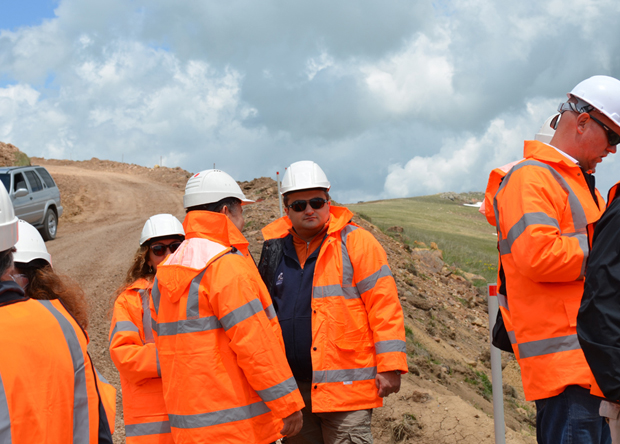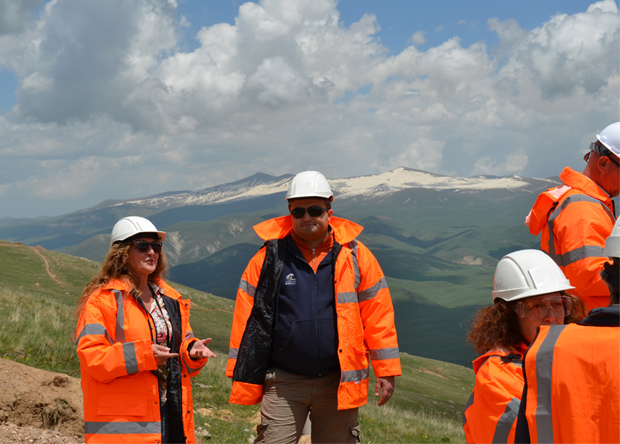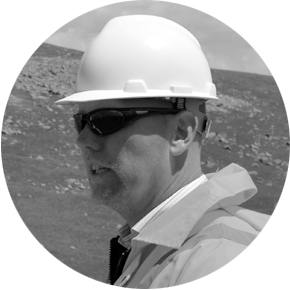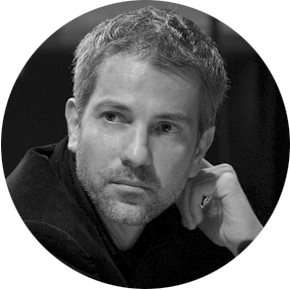Lydian International and its subsidiary in Armenia Geoteam CJSC have been long speaking about the possibility to change the perception of mining industry in Armenia by introducing modern technologies as well as modern environmental management to its Amulsar Gold project. We talked to an independent consultant for the Amulsar project, MSc in Environmental Diagnosis (Imperial College of London), Carl Nicholas about modern mining in the world as well as to the Senior Manager on Sustainability of Geoteam, Doctor of Engineering in Geo-Ecology, Armen Stepanyan about how the company is going to address the concerns of some stakeholders.
- Mr. Nicholas, many in Armenia believe that mining is an industry active only in developing or under-developed countries. However, there are mining projects in developed countries such as the US, Canada, etc. So is responsible mining possible?
- I would add to your list countries such as Sweden, Finland, Norway or Spain, that have significant mining sectors. Smaller countries in Central Europe like Czech Republic or Bulgaria, and several dozens of other countries also have established mining sectors.
As for the term “Responsible”, the concept is applicable not only to mining but virtually to any industry: chemical industry, automobile industry, construction and even agriculture. Imagine the harm caused by serious spills from the chemical or automobile industry, if the plants were poorly maintained? Even agriculture, if poorly managed, may cause irreversible damage, such as soil erosion, destruction of wildlife habitat and the associated impact on ecosystems and health of consumers.
With regards to the mining industry, the major mining companies have collectively signed up to responsible practice worldwide through the International Council on Mining and Metals (ICMM) and The Equator Principles. Over the course of time, sustainability or environmental management science has understood the consequences of adverse impacts, and developed a number of mechanisms to ensure reasonable control over the impact of development on the environment. And that is best achieved through collaboration with industries. Just as a modern car factory today has a far smaller impact on the environment than 30 years ago, the risks and impacts in modern mining are much better assessed and managed than even 15 years ago. Further improvements are also made as mining technology advances, and the science behind mining operations develops as well.
- Is that just a matter of technological progress, or there are other factors too?
-Technology certainly plays a significant role. Modern technologies allow companies to develop mines next to oceans, rivers and towns in Australia, Canada, and Europe, and still adhere to high environmental standards. Right now, there is a small Gold Project underway in Scotland, UK in the middle of a national park, which addressed the concerns of local stakeholders as well as regulators. And there are many examples. However, it is not only about the technology, it is also the new approach to environmental management. It’s about proper research into environmental issues, planning appropriate mitigation measures and engineering these measures into a design. Modern industries, including oil gas and mining are spending billions of dollars worldwide to contribute to environmental research, by cooperating with research institutions to find solutions to be able to build oil wells, mines, power stations, factories, even cities, in line with modern environmental management requirements. As a result, responsible mining is possible. I myself have worked with and seen well managed, modern mining operations in different countries, including Spain and the US.
- That’s in developed countries. In Armenia many believe responsible mining is not possible as the standards are lower.
- First of all, I have worked with Lydian on the Amulsar project in Armenia for several years now and as far as I know, the Armenian law is well written and provides suitable mechanisms to manage operations. A key component of this is the need for a coordinated approach to environmental management with the companies. Secondly, responsible mining often depends on the company that operates the mine. The standards Lydian and Geoteam have implemented in environmental research and planning, design and technologies for Amulsar project are in line with industry best practice. Many of these are voluntary, and Amulsar is aiming for the highest standards possible, including the International Finance Corporation (IFC) Environmental Standards for mining. I have participated in various aspects of the environmental management for the project, including water quality, monitoring and control, and development of risk management measures, and I have to say that Lydian has ensured international quality work to make sure that the water and soil are protected throughout the operation.

Photo: Geoteam
Additionally, I would like to say that I am particularly impressed by the professional team of environmental specialists Geoteam has developed. Armen Stepanyan, with whom I have worked for several years, now leads a dedicated team of professionals that work hard to make sure Amulsar’s operation will benefit Armenia.
- Well, then, next question is for Mr. Stepanyan. The activists bring several concerns regarding the project and some still don’t believe in the possibility to manage Amulsar’s potential impact on the environment and nearby communities. How are you addressing those concerns?
- First of all I want to emphasize that Armenia is my country and I am concerned of its well-being just as much as other stakeholders voicing their concerns. Undoubtedly environmental issues in Armenia are dire and not only in mining sector. I live in Yerevan and the air quality, water quality, and food quality concerns me every day. But environmental science is a scientific discipline and if we all want to achieve good results in environmental management, we need to speak with scientific facts and come up with scientific solutions. It is very hard sometimes to “translate” technical data into the popular language as some concerns are very emotional and based on myths and emotional hikes.
- What is it that will lead to better environmental management?
-I believe many things, first among them cooperation between those professionals in the public sector and those in the industry who are open for cooperation. Geoteam certainly is. During these years we have heard all kind of different valid and perceived concerns. We have never avoided answering or ignored any of those concerns, no matter how amateur the concern may have seemed. But as I said, environmental science is a scientific discipline. And the solution to environmental issues is scientific. To date, the company has invested over 7 years of work with over 50 local and international independent experts, with world class scientists involved from the US, UK, Australia, Canada and elsewhere, with Armenia’s best scientists on water and soil management, biodiversity and other disciplines. The company has spent around 5 million dollars on environmental and social research and mitigation measures design and this is a sound scientific work of dozens of high-class professionals. I want to especially thank the very professional teams of National Academy of Science, including Institute of Botany, Institute of Zoology, Armenian Nuclear Power Plant Radiation Safety Department, Armenian Society for Protection of Birds, Cultural Heritage NGO, Regional Environmental Center of Caucasus and many others, who have worked with us, raised issues and together with our international consultants pushed for the best solutions.

Photo: Geoteam
This is how responsible companies ensure high standard environmental research and management worldwide. Honestly I know of no other working mechanism to ensure it.
- But activism is also one of the ways, isn’t it?
-Certainly it is a way to raise awareness and certainly a very necessary way. Emotions are also understandable, given the vivid problems in ecological management in Armenia. But if it aims at solutions, the majority of arguments need to be fact-based in order to push the industry to higher standards.
- Well, some activists bring a lot of arguments, how do we know which ones are fact based?
-Amulsar Environmental and Social Impact Assessment conducted under the supervision of several dozen local and international independent experts will be disclosed in the coming weeks and it contains over 1000 page of research that will give the answers to your question. Some of the preliminary studies on concerns expressed by constituents have been long available on our website. For example: radiation. Specific research has been conducted by world-class and local scientists at significant cost that says that radiation on Amulsar is and will be lower than radiation levels in Yerevan and that there is no threat due to radiation. But these claims keep being circulated by some activists, which I believe devalues the debate. Another example is that isotope research based on scientific modeling and testing determined that Jermuk mineral waters will not be impacted by the project, but ongoing claims that mineral water will be destroyed distract from the real issues in the industry. It also diverts resources and further research into disseminating or responding to myths.
-Even if there is no impact on the water, you don’t want to say that the project doesn’t have any impact, do you?
- As Carl said any industry, from construction to agriculture has an impact. What I want to say is that there are mines in the US next to mineral water resorts like Colorado Springs, with all potential risks successfully managed. What I want to say is that there are mines in Czech Republic, where I have studied, with two coal projects next to the touristic town of Ostrava, there are mines in Sweden with one mining project right adjacent to the town of Kiruna, and there are hundreds of examples. Technology today allows to safely manage mining projects.
As for Amulsar project, over 50 million dollars are allocated for environmental management and proper closure of the mine. This includes water management and treatment, dust management, soil quality control and acid rock drainage control measures, all being modern mechanisms. We welcome everybody to a discussion around these issues and welcome any question about how we are going to control the risks and that will be a meaningful discussion, beneficial for setting higher standards of environmental management in Armenia. Because I believe Amulsar project is a very well designed project and when it starts operation it will be an example of a modern world-class mining project. And my job and the job of my team of professionals will be to make sure that the Amulsar project is well-managed every hour and every day from the environmental point of view benefitting the communities and the country from the economic point of view.





















